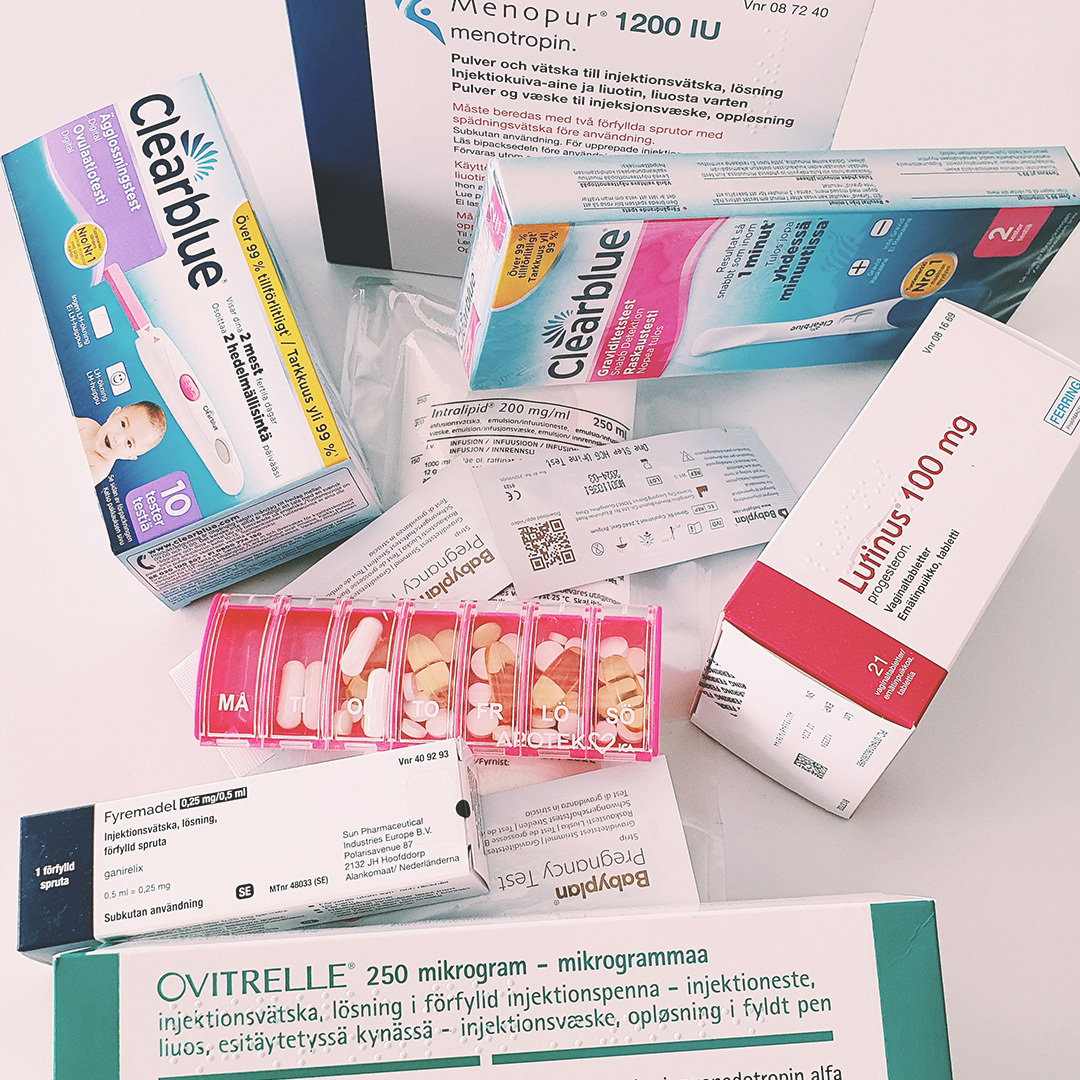Fertility Treatment Abroad

Traveling abroad for fertility treatment is increasing as there are benefits. There are people who consider going abroad after unsuccessful treatments in their own country while others decide to go abroad straight away. In Europe many clinics are very well set up to serve international patients and often have staff who speak a range of different languages to ensure that communication is easy and clear both ways.
What are the best IVF clinics in Europe?
Firstly, it’s important to note that there is no one size fits all. There are many excellent clinics but since going through infertility and treatment is an emotional, physical and often financial challenge it’s important to select a clinic that is best suitable to you. Every person is different and everyone's fertility journey is unique. We all have our own preferences, needs, likes / dislikes as well as budgets and therefore the best clinic depends on your personal circumstances. Aside from individual preferences and needs, determining the "best" fertility clinics can also vary depending on specific criteria such as success rates, expertise, location, staff, available treatments and previous patient reviews.It is also important to remember that each country has their own regulations when it comes to ages, treatments, embryo transfer policies etc. There are also cultural aspects to consider and communication styles differ, as do prices and specialisms. For many people the actual destination is also key, to be sure you are in a country where you feel comfortable, that is convenient to travel to, safe, politically stable and can offer you the treatment you need.
Where is IVF most successful?
We give our partner clinics featured on Bumpy the possibility to add their success rates however it is important to understand IVF success rates and that there are many factors influencing them. It is therefore difficult to say where IVF and other fertility treatments are most successful because of the way in which success rates are recorded, presented and measured and the conditions vary. For example, an IVF clinic may be specialized at treating women over 40 withIVF using their own eggs and therefore attract patients in this age group. However, the success rates for older women who use their own eggs will always be a lot lower than that of younger women. So comparing this type of clinic with a clinic that only takes younger women wouldn’t make sense.
Therefore, success rates should not be used as a sole decider on whether to choose one IVF clinic over another and where IVF is most successful will also depend on your circumstances.
What is the cost of IVF abroad?
The short answer is that the cost of IVF treatment in Europe can vary significantly depending on the destination, the clinic you choose and your exact treatment plan. On average, the cost of a single IVF cycle in Europe ranges from €3,000 to €7,000. However, this cost does not include additional expenses such as medication, diagnostic tests, consultations, and any necessary procedures like embryo freezing or genetic testing, which can increase the total cost. It's important for individuals considering IVF treatment abroad to research and inquire about the total cost breakdown and factor in all associated expenses when planning their budget. You can also easily compare clinics and prices on Bumpy.
What are the advantages of undergoing IVF abroad?
There are many pros for seeking treatment abroad.
Lower Cost:
IVF treatment can be significantly cheaper in some countries due to lower medical expenses and exchange rates
Access to advanced technology:
Some countries offer cutting-edge IVF techniques, options for testing and technologies that may not be available locally
Privacy:
Seeking treatment abroad can offer anonymity and privacy, which may be preferred by some individuals
Shorter waiting times:
Waiting times for IVF treatment may be shorter or with possibility of immediate start compared to local clinics
Better accessibility for certain patient groups:
For example those with high BMI or older age
More options for donor conception:
Treatment abroad for those in need of egg or sperm donors may offer larger donors pools, anonymity, potentially better legal frameworks and increased privacy
Expertise:
Be treated by medical professionals with extensive or specific experience that is not accessible in your country
Time away:
Doing treatment abroad can offer time away from stresses of daily life and work
Tourist opportunities:
Patients can combine treatment with a vacation, turning the experience into a positive one
We also want to highlight some disadvantages of undergoing treatment abroad:
Legal and regulatory differences:
Different countries have varying laws and regulations regarding fertility treatments, which may affect the process and legality of certain procedures.
Language barriers:
Most clinics have support in many languages but communication could be challenging if the patient and medical staff do not speak the same language fluently.
Travel logistics:
Organizing travel arrangements, including flights, accommodation, and transportation can be stressful, time-consuming and adds to the cost
Lack of follow-up care:
After treatment, it may be difficult to access follow-up care and support services if the patient returns home.
Cultural differences:
Cultural norms and practices related to healthcare may differ from one's home country, potentially impacting the treatment experience.
Donor regulations
Donor laws and regulations for treatments like IVF with donor eggs, donor sperm or embryo adoption in Europe can vary significantly from country to country. Not all countries will serve all people and for all types of donation and some do not allow it at all. Some common regulations include:
Anonymous vs. Open ID Donors (Non-anonymous Donors):
Some countries allow for anonymous sperm or egg donation, while others require donors to be identifiable to offspring once they reach a certain age.
Screening and Testing:
Donors typically undergo rigorous screening processes to ensure they are healthy and free from hereditary diseases or infections. These screenings usually include medical, genetic, and psychological evaluations, but clinics will vary in their donor screening and recruitment processes.
Number of Offspring per Donor:
Many countries have restrictions on the number of offspring that can be conceived from a single donor to prevent consanguinity and reduce the risk of passing on genetic disorders.
Ethnicities:
Not all countries will serve all people or will be able to match to all ethnicities. How donors are matched will also vary depending on the clinic's processes and laws in that country.
Compensation:
Regulations regarding compensation for donors vary, with some countries allowing monetary compensation while others only cover expenses related to the donation process.
Legal Rights and Responsibilities:
Donor-conceived children may have legal rights to access information about their donor, including medical history and identity, depending on the country's regulations.
If you are looking into fertility treatment abroad with donor gametes it's important to research the specific regulations in the country of interest, as they can differ significantly and may impact both donors and recipients of fertility treatments.
How do I get started?
A good starting point is to understand what points are important to you when looking for a clinic abroad while acknowledging your own circumstances.Research is important and with Bumpy we offer an easy free filtering tool to help you find and compare fertility clinics based on your needs. Bumpy makes it easier for you to view relevant information such as available treatments and prices, quick facts, photos, success rates, patient reviews, and any additional services provided when considering a fertility clinic. It is important that you do your due diligence.
In addition our community helps when seeking recommendations from trusted sources to make an informed decision and you can also find a list of gynecologists and centers that help with follow ups when doing treatment abroad in our list.
Take me to the free clinic search tool!

Article by
Andrea Olsson
Co-founder of Bumpy
Other Articles

Samantha's Story
I knew from the start that it was hard to conceive a child of our own with my partner. As a child he... Read article

Male factor infertility
The definition of male factor infertility is when the cause of infertility within a couple is becaus... Read article

Endometriosis
The European Society of Human Reproduction and Embryology (ESHRE) has recently released an updated g... Read article
.jpg?alt=media&token=912e3772-6724-4c20-a29e-201478dda308)
Intrauterine Insemination
Intrauterine insemination (IUI), also called artificial insemination (AI), is a type of fertility tr... Read article

Jessica Olers's Story
Sometimes it doesn't turn out as planned. Ever since I was little, I have dreamed of a big family wi... Read article

Jessica’s Story
I have been pregnant three times. Or actually while writing this story, I am pregnant. But I don't f... Read article

Klara’s Story
Our infertility journey started two years ago. The process has not at all been what we expected and ... Read article
.jpg?alt=media&token=fc32a2e6-a127-4170-b5fb-b9338770ed1a)
The effects of Vitamin D on fertility
Vitamin D is a vitamin synthesized in the skin through sun exposure (UVB radiation). Moreover, vitam... Read article

Veronica’s Story
To make babies. Nowadays that phrase has a completely different meaning.In february 2019 we decided ... Read article

Tova’s Story
This is #mybumpystory - an emotional rollercoaster with repeated miscarriages and hopefully soon a b... Read article